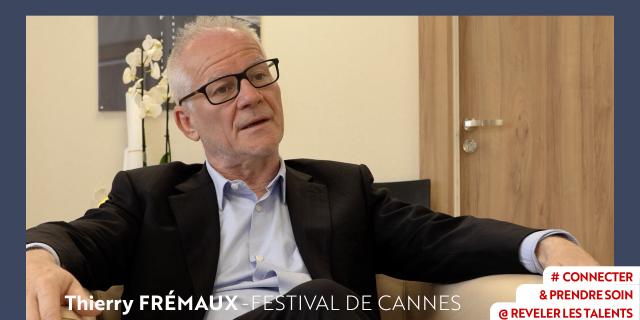 Vignette itw - Thierry Fremaux
Vignette itw - Thierry Fremaux Vignette itw - Thierry Fremaux
Vignette itw - Thierry Fremaux Vignette itw - Thierry Fremaux
Vignette itw - Thierry Fremaux“Le Palais des Festivals has a sometimes contrasting image. Some people call it a bunker, think it’s a massive building in front of the sea. But I’ve always loved le Palais. Clearly, when you want to be an international destination, the question of transport arises, and in particular that of aviation. Our teams come mostly by train and no longer by plane as in the past.
It’s important to think that the fact that the world’s cinema is here for two weeks doesn’t have too negative an environmental impact. It’s much less so than in the past. The progress is noticeable, but we’ll still have to keep improving all that.”
“Le Festival de Cannes in terms of its historical mission has a dual ambition: on the one hand to celebrate and on the other to discover. Celebrating means the great auteurs who are there, pillars of contemporary cinema history. At the same time, it’s revealing, discovering young authors, young directors, new countries too, because the geographical expansion is in keeping with the perspective of universality at the root of the festival’s creation in 1939 and 1946.”
“What’s great – and what le Palais embodies – is this red carpet on which all these generations, all these types of cinema, all these countries, glamour and an extremely radical filmmaker from Argentina mingle. Each cinema benefits the other. We see mainstream directors like Tim Burton rewarding and offering the Palme d’Or to a Thai filmmaker. There’s a totally strong and stimulating respect. “
“We have people in town who come to be here and people who come here to work at the Film Market, in the sub-basement of le Palais. Workers come all day to make the cinema of tomorrow. There are pure cinephiles, critics, everyone works. The one and only major conversation from the first coffee in the morning to the last whisky in the evening is cinema!”